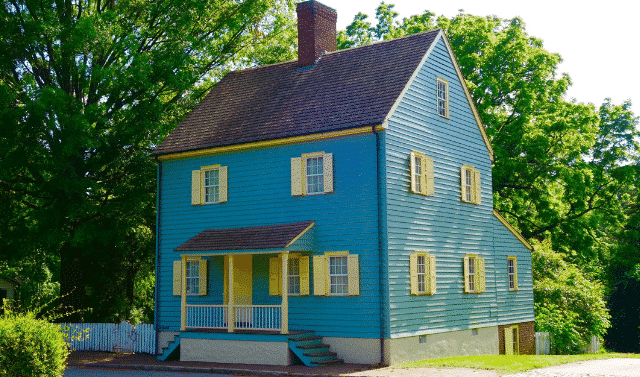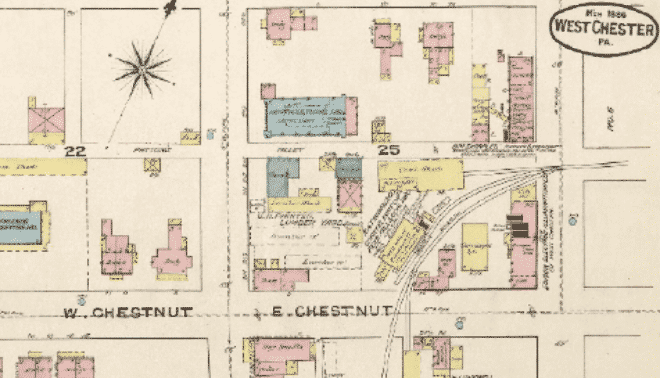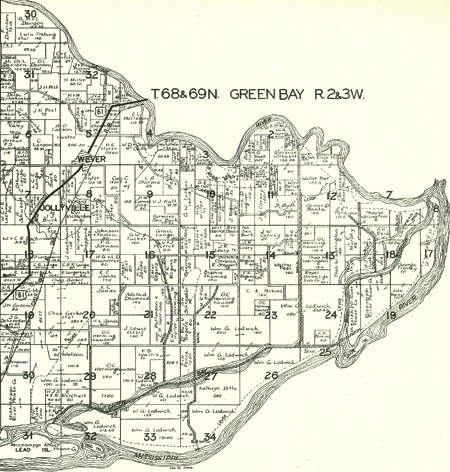Sign up for the Family Tree Newsletter! Plus, you’ll receive our 10 Essential Genealogy Research Forms PDF as a special thank you.
Get Your Free Genealogy Forms
"*" indicates required fields
From genealogist to house historian isn’t a big leap, but there are some differences between researching the history of a building and researching the people who occupied it. For example, it helps to have a rudimentary knowledge of historical architecture and construction. Fortunately, a number of free online resources can help you construct house histories.
In addition to the sites listed here, run a Google search to find other resources for your locality. Deed and tax records, at least for recent years, are often on county, city or town websites. Also search state and local historical societies and libraries, and check out the state office for historical preservation. You’ll learn about architecture common in the state, and how to register your home once you’ve successfully completed your house history.
Chronicling America
Newspapers can be a rich source of information about the development of an area and the people who lived there. This collection has digital newspapers predominantly from the 1860s through the early 1900s. Use the advanced search option to focus on a certain paper, place, time period or other criteria. The US Newspaper Directory can help you find microfilm or print copies of other newspapers not yet online.
FamilySearch
More and more deeds are becoming available through FamilySearch’s historical record search. At press time, all of New York and Massachusetts are available, as well as select counties in Illinois, Minnesota, Vermont and Washington. FamilySearch also has a growing collection of probate records. To see if records for your state and county are available, go to the FamilySearch website, click on Search, and select United States from the regional list. Click on a state name on the left to show collections from only that state.
General Land Records Office
The US Department of the Interior Bureau of Land Management portal allows you to view original land parents, survey notes, tract books and more. Order a certified copy of a document for a fee.
Historic Map Works
Historic Map Works offers a variety of atlases and maps to help you locate properties and property owners. For easy searching, just type the name of the county and state into the search box on the home page. Once you find a map or atlas to view, look for an Overlay button (not available for every map) to overlay the atlas on a current map. It’s free to view the maps here; the site charges for downloads and prints.
Kansas Historical Society: House History Checklist
Although published by the Kansas Historical Society, this free, downloadable PDF checklist is useful for any locale. Once your head begins to spin from absorbing all of these resources, print it as a reminder of house history records to check.
Library of Congress
The Library of Congress (LOC) has digitized many maps—cities, towns, railroads and more—that can be useful in your search. There’s even a collection of Sanborn Fire Insurance maps, which can tell you what materials a structure was made of, along with other details. (Many local and state libraries and historical societies also are digitizing these.) The LOC’s inventory of all the Sanborn maps in its collection can help you determine what years maps were published for your area, even if they aren’t online.
The Library of Congress also has a collection dedicated to historic American buildings.
My House History: Resources
Links to house history resources from nearly every state are collected on this page. Although the listing isn’t comprehensive, these links may save you time in locating resources (you should still search for other local or state resources). Scroll to the bottom of the page for links to general house history resources.
National Register of Historic Places
The National Park Service maintains the National Register of Historic Places, which you can search by county and state to see if your home has already been researched and registered. Even if it isn’t listed, try to find another house from the same area and time frame; this may lead to sources that’ll inform your own search.
OldHouses.com House Style Guide
This field guide from OldHouses.com provides examples of home styles from the 1600s to the present. You’ll see photographs of homes in the styles covered along with handy lists of the defining features for each style.
PreservationDirectory.com
Looking for a listing of historical societies, history and house museums, historic neighborhood preservation groups, state historic preservation offices, and similar organizations? This is the site for you. Thousands of links to local resources are collected here, all of which lead you to more locality-specific information. You might even end up purchasing your own historic home from the real estate listings.
Red Book: American State, County And Town Sources
RootsWeb (now part of Ancestry.com) offers a free, online version of this essential resource. If you’re not sure what records are available for the time and place you need, scroll down and select a state of interest, then choose from the topics offered on the right. Click County Resources to see a table of counties and availability dates for major record groups.
This Old House: 9 Ways to Research Your House History
Here, the “This Old House” experts offer guidance on piecing together a house history. Learn what kinds of clues you can glean from a home’s physical features, and examples of how that information fits into the home’s story.
ThoughtCo: Influences on American Home Styles, 1600 to Today
This online architecture guide is an excellent reference for different styles of American homes. You’ll learn about architectural styles and their evolution over history.
WikiHow: How To Research the History of Your House
In three simple, no-frills steps, this article walks you through assembling a house history. It’s a good point of entry for the true beginner trying to understand the big picture.
Books About House History and Architecture
Compiled by Maureen A. Taylor
- America’s Architectural Roots: Ethnic Groups that Built America by Dell Upton (Preservation Press)
- The Big House: A Century in the Life of an American Summer Home by George Howe Colt (Scribner)
- If These Walls Had Ears: The Biography of a House by James Morgan (Warner Books)
- Houses and Homes: Exploring Their History by Barbara J. Howe, Dolores A. Fleming, Emory L Kemp and Ruth Ann Overbeck (AltaMira)
- How to Research Your House: Every Home Tells a Story by Pamela Brooks (How To Books)
- A Visual Dictionary of American Domestic Architecture by Rachel Carley (Henry Holt)
- Windows on the Past: Four Centuries of New England Homes by Jane C. Nylander and Diane L. Viera (Bulfinch Press)
Related Reads
A version of this article appeared in the January/February 2014 issue of Family Tree Magazine. Last updated: January 2025
FamilyTreeMagazine.com is a participant in the Amazon Services LLC Associates Program, an affiliate advertising program designed to provide a means for site to earn advertising fees by advertising and linking to affiliated websites.







